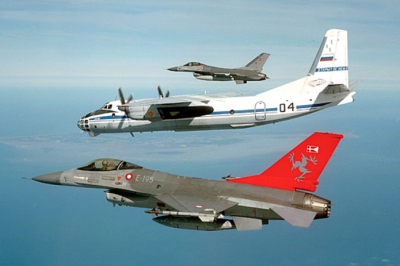US Prepares to Withdraw from the Treaty on Open Skies

On Thursday, May 21, American President Donald Trump announced the decision to withdraw the United States from the Treaty on Open Skies, signed with Russia and ratified by 35 other countries in 1992. Trump says the reason for withdrawing from the agreement is the alleged violation of the terms of the treaty by the Russian Federation. In Trump’s words: “Russia did not adhere to the treaty. (…) Until they adhere, we will pull out”.
This is the third international arms control treaty from which Donald Trump has withdrawn since the beginning of his government. Two years ago, the United States withdrew from the Joint Comprehensive Plan of Action (JCPOA), commonly known as a nuclear agreement or Iranian agreement. Last year, the United States left the Intermediate Range Nuclear Forces (INF). Now, US withdraws the Treaty on Open Skies after accusing Russia of violating the treaty.
The Treaty on Open Skies was signed with the clear intention of contributing to world peace and a balance in the power game between nations, allowing signatories to freely fly their non-military and unarmed aircraft over the spaces of other member states. The agreement aims, above all, to improve mutual trust between nations through collection of information from each other during unarmed flights.
Despite Trump’s claims that the U.S. is withdrawing from the deal because of its violation by Russia, the evidence points to an entirely different response. American strategists have for years criticized the agreement and its strategic importance for the United States, stating that Washington gains greater advantage from the use of modern satellite systems, and does not need to comply with the rules and conditions of an international treaty for the safe collection of information. This means that the reason for leaving may be that Washington, not Moscow, has a much greater capacity to violate the treaty in many different ways.
The allegations against Russia – which relate to major recent events in regions of dispute and tension, especially on the border with Ukraine – are unfounded and somewhat distorted, clearly manipulated in order to justify a unilateral decision by the Trump administration. However, this is not the merit of the issue. The most worrying fact is how much the risks of world war increase with this US exit – which, in practice, means the end of this treaty that in recent years represented a great step in the history of diplomacy between Washington and Moscow.
Upon leaving the agreement, the US no longer has international rules concerning the use of aircraft – mainly espionage – in any country in the world, including the signatories to the treaty. In addition, there is the issue of spy satellites, which are not under discussion at the moment and are permitted under international space law. Thus, the risks of creating tensions with intelligence activities and unregulated collection of information are high, generating a global atmosphere of constant uncertainty, resuming the typical scenario of the Cold War years.
Still, the biggest losers from Trump’s decision will be his European allies, considering that these countries do not have the same military and intelligence capabilities as Washington, needing the Treaty completely to obtain information on Russian activities. If Russia comes out of the agreement, Europe will be completely vulnerable and once again American and European interests will be in deep shock.
It is also curious how tensions of this nature are created in the midst of a period of global emergency and collective concern about the advancement of the pandemic of the novel coronavirus. International organizations try to create the myth of the “union” of states and of global cooperation for the victory over the virus, which, as can be seen, is a big lie, especially when we take into account the American praxis.
The United States recently financed the invasion of Venezuela by Colombian mercenaries in an unsuccessful attempt to overthrow the government of Nicolás Maduro; subsequently, they sent warships to the Caribbean Sea to surround Iranian ships reaching the Venezuelan coast; the American government has repeatedly accused China of creating and spreading the virus; now, unilaterally, the country withdraws from one of the most important treaties of military balance and peacekeeping, “justifying” its departure with alarmist accusations against Russia. After all, what is the American role in the current world power game? What is the interest behind so many aggressive maneuvers on the international stage while the world is distracted fighting the pandemic?
In fact, the stance of American foreign policy during the pandemic is being more aggressive than it was before the virus. It remains to be seen what the intention behind all these violent actions is. As for the Treaty, Washington is not leaving it for “Russian violations”, but because it no longer needs it.
*
Note to readers: please click the share buttons above or below. Forward this article to your email lists. Crosspost on your blog site, internet forums. etc.
This article was originally published on InfoBrics.
Lucas Leiroz is a research fellow in international law at the Federal University of Rio de Janeiro.
Featured image is from InfoBrics

